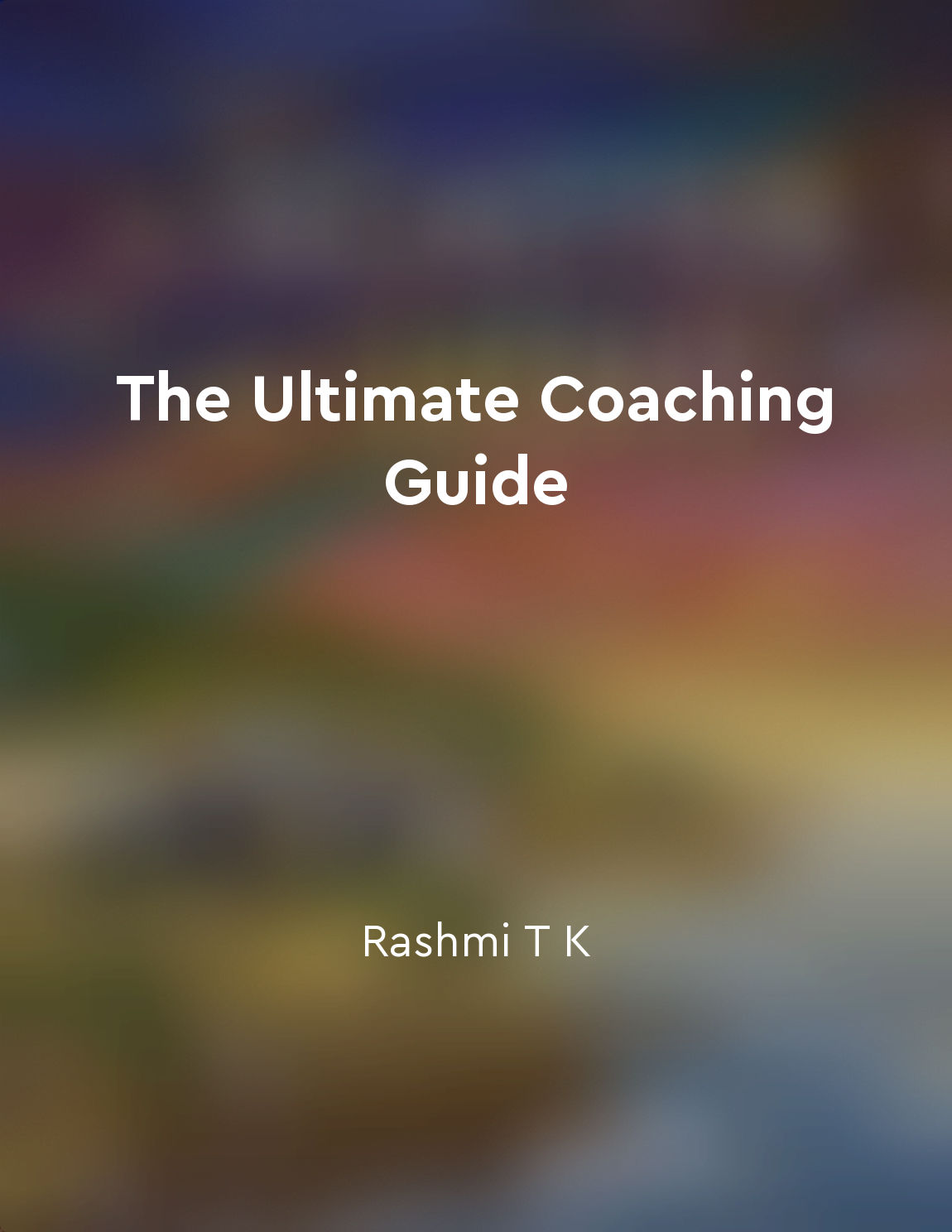Help others find their own solutions from "summary" of The Advice Trap by Michael Bungay Stanier
When you're in a conversation with someone, it's easy to jump in with your own thoughts and ideas about what they should do next. It's natural to want to help, to share your wisdom and experience. But what if I told you that the best way to truly help someone is to resist that urge? Instead of giving them the answers, your job is to help them find their own solutions. This concept is at the heart of coaching. Instead of telling someone what to do, a coach asks questions that help the other person think through their own situation and come up with their own solutions. It's a more empowering approach, because it puts the responsibility and ownership back on the other person. When you rush in with your own solutions, you're actually doing a disservice to the other person. You're robbing them of the opportunity to think for themselves, to learn and grow from the experience. By asking questions instead of giving answers, you're helping them develop their own problem-solving skills and become more self-reliant. Of course, this doesn't mean you should never offer advice or share your own thoughts. There's a time and place for that. But the key is to do it mindfully, and to make sure you're not taking over the conversation or steamrolling the other person. Your goal should always be to help them find their own way forward, not to impose your own agenda on them. By practicing this approach, you'll not only become a better coach and mentor, but you'll also deepen your relationships with others. People will appreciate your willingness to listen and support them in finding their own solutions. And in the end, isn't that what true help is all about?Similar Posts
Appreciative Coaching is a dynamic and evolving process
Appreciative coaching is not a static or rigid process; rather, it is a fluid and ever-changing journey. It is characterized by...

Foster a lifelong love for learning and personal development
Encouraging a deep-rooted passion for continuous learning and personal growth is a fundamental aspect of effective coaching. By...
Use hypothetical questions to explore different perspectives
When you want to help a client see things from a different angle, one powerful tool you can use is the hypothetical question. B...
Start with openended questions to explore and expand
When you ask a coaching question, you are essentially opening a door to a new realm of possibilities. The way you frame your qu...

Establish a code of ethics and conduct
When working as a coach, it is crucial to establish a code of ethics and conduct to guide your actions and decisions. This code...

Foster a sense of empowerment and autonomy in your clients
To be an effective coach, it is crucial to help your clients feel empowered and in control of their own lives. This means creat...
